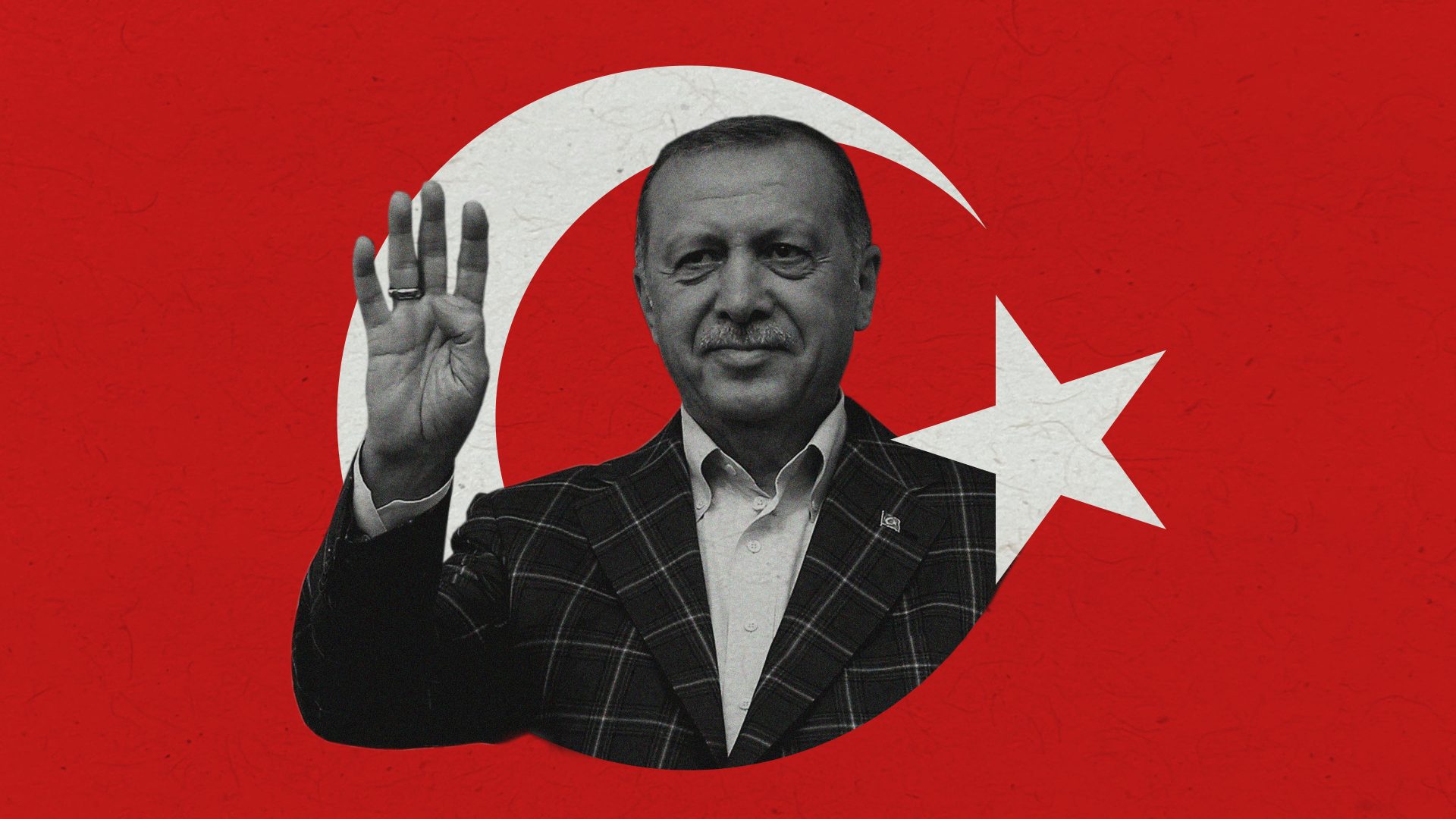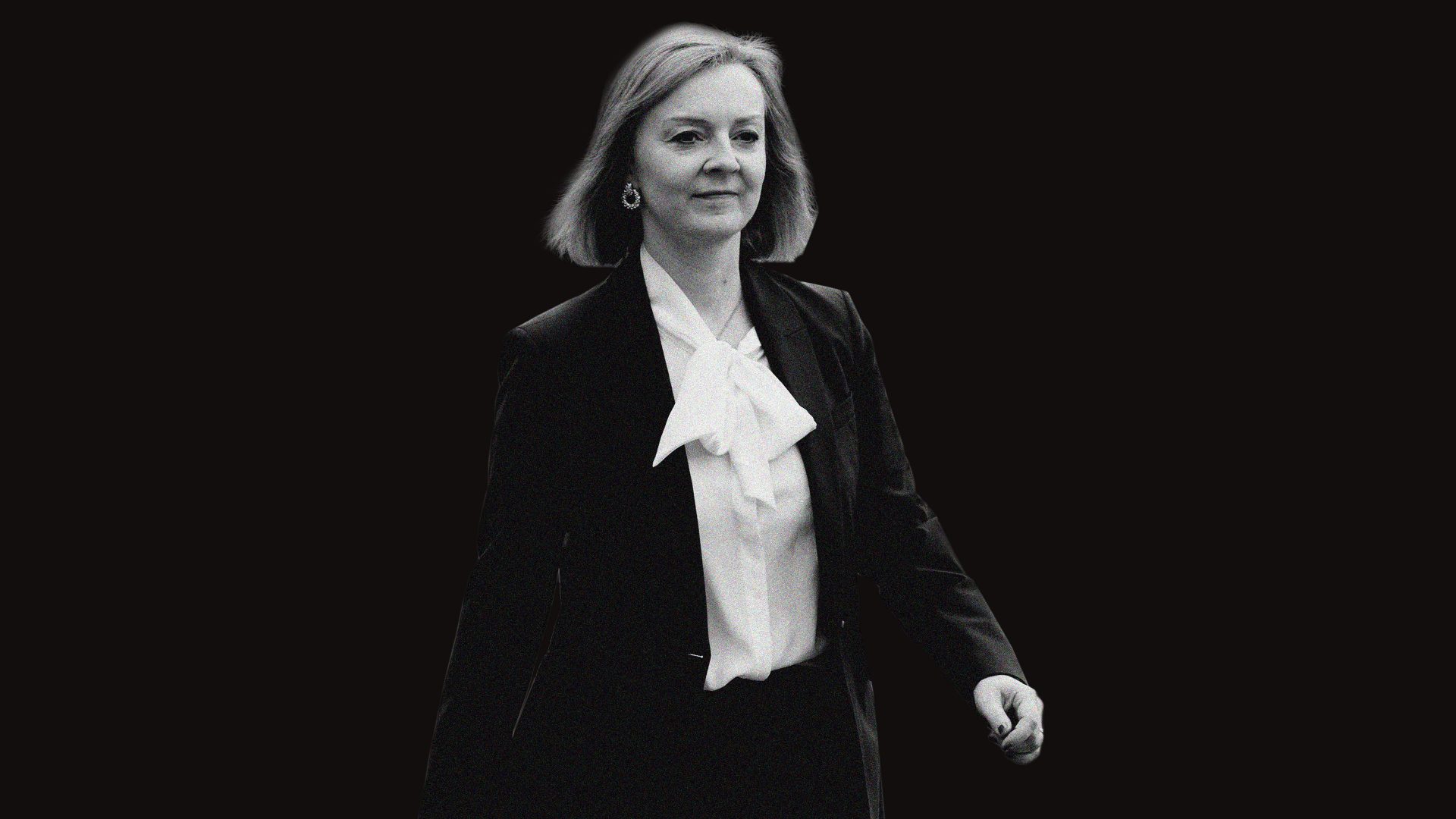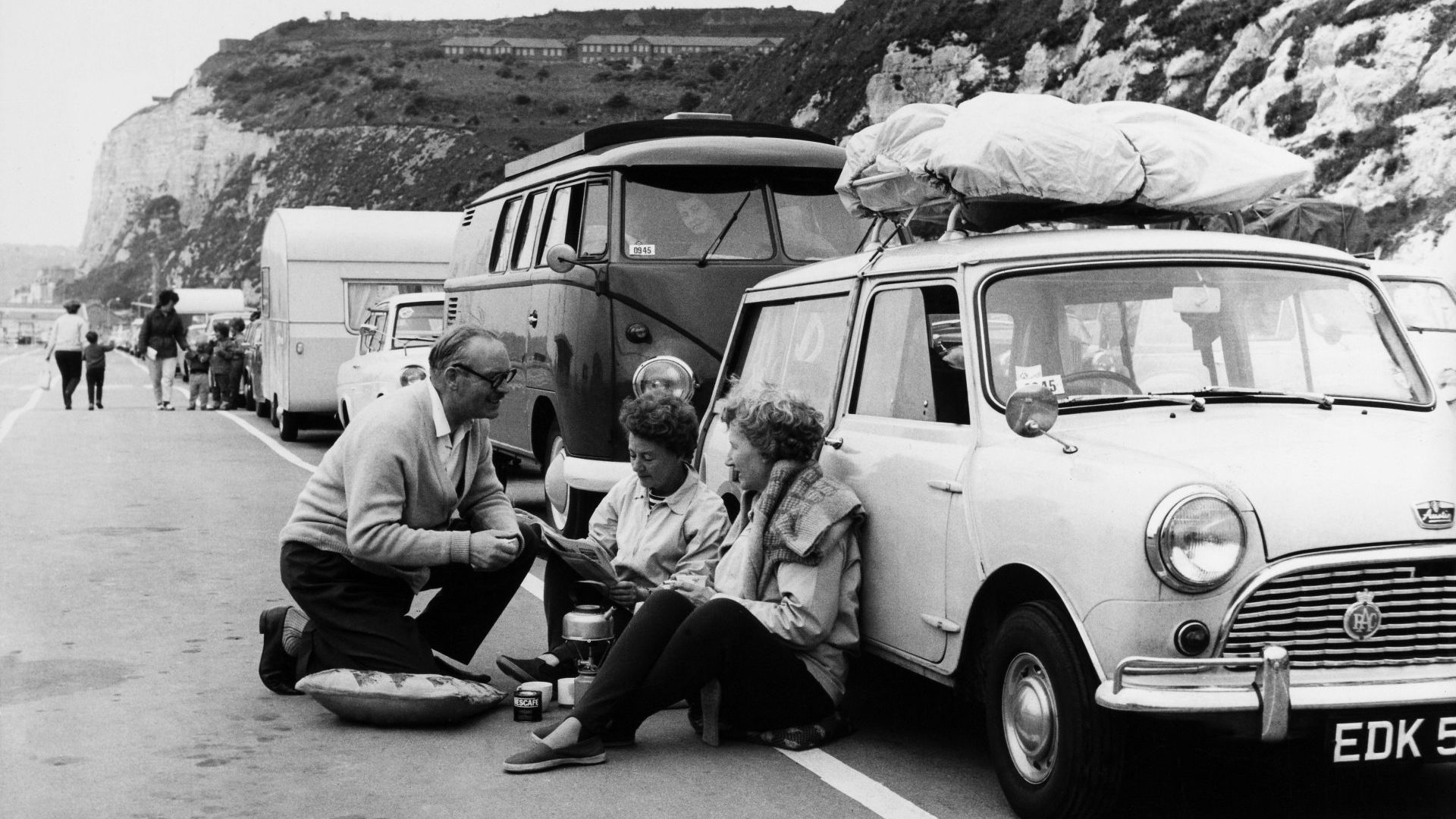Turkey’s president, Recep Tayyip Erdoğan, was once jailed for quoting a poem. He is famously proud of his oratory, but the secularist authorities were unimpressed by the Young Turk-era nationalistic verse comparing minarets to bayonets and mosques to barracks. He quit his job as Istanbul mayor and spent four months in jail for inciting religious hatred.
You’d think that, with this experience behind him, Erdoğan would be more sympathetic towards freedom of expression. Instead, he seems to be using this as a “how to” guide – how to rid yourself of the irritating thoughts of others.
Hundreds of journalists, artists, writers and intellectuals have been investigated, taken to court or jailed during Erdoğan’s 20-year leadership – many of them since an attempted military coup in 2016. According to Turkey’s Association of Journalists, 44 journalists were behind bars at the end of last year in Turkey, second only to China.
Under authoritarianism, where journalists go, artists soon follow – the last few years have seen a parade of artistic national treasures, including veteran comedian Müjdat Gezen, 77, and actor Genco Erkal, 83, put on trial. In January, universally loved pop diva Sezen Aksu was publicly threatened by Erdoğan over lyrics that described Adam and Eve as “ignorant”. He said it was up to “us” to “cut out the tongues” that attack such holy characters.
But the most recent – and biggest – outrage came in April, when arts philanthropist and respected civil society activist Osman Kavala was handed a life sentence without parole for what has been described as “ludicrous” charges of attempting to organise the overthrow of the government. Seven others, including a film producer and a documentary maker, were sentenced to 18 years for aiding his “treasonous” plans. Kavala called it a “judicial insurrection”. In July, the European Court of Human Rights (ECHR) ordered Turkey to pay Kavala €7,500 (£6,400) for failing to release him in accordance with a 2019 ruling. This was a rare case of the court explicitly reprimanding a country and puts Turkey a step closer to being suspended from the Council of Europe.
The response in Turkey was furious. “This is the embodiment of the political abuse of the judiciary,” said the well-regarded, non-partisan political commentator Murat Yetkin. “It’s such a stark example of injustice that it will go down in history.”
A lengthy list of arts luminaries, including eminent actress Müjde Ar and Palme d’Or-winning director Nuri Bilge Ceylan, signed a petition and proclaimed: “We won’t be silent, we are not afraid, we are not cowering.”
The international reaction was also incandescent. The European Parliament said that Turkey had “deliberately destroyed any hopes of reopening its EU accession process,” which is frozen over issues such as the rule of law, while the US said it was “deeply troubled and disappointed” by the verdict. Ankara has squandered all the goodwill gained from its efforts to help Moscow and Kyiv negotiate an end to the Russian invasion of Ukraine.
Admittedly a belligerent leader on the world stage, Erdoğan has risked even more than usual in his insistence that Kavala be jailed. The question being asked today is – why? Erdoğan’s government wiped out almost the entirety of Turkey’s existing political parties when elected in 2002, and he has cemented his power ever since, even scrapping the position of prime minister to create his all-powerful presidency. He is surrounded by yes-men and the opposition has so far failed to field a credible challenger. What has he to fear from a bunch of luvvies and their financiers?
On one level, Erdoğan and members of his Justice and Development party (AKP) have long disapproved of the arts scene. His opponents believe there is also a class issue of a man from Istanbul’s famously rough Kasımpaşa district disapproving of decadent western-inspired culture. Erdoğan once admitted in an interview that he didn’t like “imperialist” ballet because it was “below the waist”, obscene. Erdoğan had a peace sculpture destroyed for being “freaky”. An ally said of a partly-nude sculpture: “I spit on this art.”
They also dislike the oppositional nature of many artists, and complain that anti-government leftists and ardent secularists want a monopoly over culture – a monopoly they have attempted to break by cosying up to more amenable artists and helping to fund a more friendly creative scene. There is also the point that these high-profile attacks distract from Turkey’s unfolding economic crisis, exacerbated by eccentric policies.
Erdoğan is famously thin-skinned, and he has an early track record of suing over depictions of him in animal form. British Stuckist artist Michael Dickinson was repeatedly tried and briefly imprisoned for showing Erdoğan as a compliant dog next to US president George W Bush during the Iraq war, while Turkish caricaturist Musa Kart was sued for drawing him as a kitten entangled in a ball of wool representing the religious schools that sprang up under his premiership. Later cases include a German cartoonist accused of insulting him and a rapper jailed for “encouraging drug use”.
“They’re trying to cut society’s vocal chords,” said Aslı Erdoğan, an award-winning author who now lives in exile in Berlin after a series of prosecutions that could have resulted in a life sentence.
But lately, as he approaches 2023 elections trailing in the polls, with the economy tanking, there seems to be something else – panic. There is a story – possibly apocryphal – about Erdoğan being told: “Well, sir, you may have 20 million voters but they have 50 million fans.”
Gezen, who was fully acquitted in March of charges that he and fellow comedian Metin Akpınar had “insulted the president”, told me how the three policemen who first came to arrest him were devotees. One told him proudly that he had been assigned to protect Gezen after an arson attack on his theatre. When people like him are targeted, he said, even supporters of the government are equivocal: “People grew up watching my films. I am not afraid.”
Others note that the recent spate of anti-creative threats and legal actions comes after a long period in which the government has been trying to get them onside. Erdoğan even (temporarily) made up with the internationally celebrated pianist and composer Fazıl Say – a vocal critic who was convicted in 2013 of blasphemy after retweeting a verse on pious hypocrisy by the 11th-century Persian poet Omar Khayyam.
Levent Üzümcü, famous for starring in a popular television series, speaks of a bargain the government has been trying to strike with entertainers: “They’ve been trying to spread their influence. If you have fame and money, you can keep it if you don’t talk against the government or mention the economy.”
Üzümcü wouldn’t play ball. A relentless critic of Erdoğan, he was sacked in 2015 from state-subsidised theatre after two decades of service, and finds it almost impossible to perform for many of his out-of-town fans because pretty much every provincial theatre is run by the state – officials who help him are sacked. He’s been playing hotel ballrooms and wedding venues, and even performed solo on a marble plinth in an Istanbul square – the plinth was soon removed. He’s often on the brink of arrest: “It’s like I have a subscription membership to the courts. I keep having to go in and testify. Why did I say this? Why did I say it in this way? Why the ellipsis?” The last one mystifies him still – he was blamed for destroying the value of the already tanking lira in a tweet, and even the three dots at the end were deemed offensive. “I won that case two months ago. I’m embarrassed to talk about this, to be honest.”
But that’s not the whole story. Not all Turkish creatives are political. Art is about more than just politics, they maintain, and protest is draining and distracting.
Oppression in Turkey is as complex and contradictory as everything else in a country that both physically and metaphorically straddles two continents and has a history of societal resentment. That’s why someone like Erdoğan, who comes from political Islam, still plays the underdog with resonance after decades in which devout Muslims and other groups have been marginalised by the coup-happy military and the ultra-secularist political leadership that supported it.
So it was that he made a show of inviting his own court of luminaries to a Ramadan fast-breaking meal in Istanbul, including Hülya Avşar, a beauty queen-turned singer and actress and the pianist Pekinel sisters.
Some don’t want to refuse the president, or are mindful of their rent and school fees, others are criticised as being sycophantic, but there are those who have tales of their own of past repression. One regular attendee to the Erdoğan Ramadan meals is Bülent Ersoy, a statuesque painted doll of a woman with jet-black hair and deep velvet voice who is regularly pictured next to Erdoğan and his headscarf-wearing wife. Ersoy, an extraordinary singer of Turkish art music, transitioned in London from male matinée idol to queen of the nightclubs after the 1980 military coup, and has never forgiven the military for her exile and stage ban. Orhan Gencebay, a much-respected singer, was once banned from state television and radio because he sang Arabesque music – despised by the secularist elite.
The military, which until the mid-Erdoğan years played a pivotal role in politics, had a hard line in censorship themselves, sending faxes to editors with orders not to publish certain stories. The late Mehmet Ali Birand, one of Turkey’s finest journalists, spoke of his absolute terror when he was court-martialled over allegations of discouraging young Turkish men from military service. Dissident artists agree that any civilian government is better than a military regime – many of them were out on the streets in 2016, protesting against the armed attempt to topple Erdoğan – but they say the comparison is not useful. It’s been more than 40 years since the last full military coup, and now even policemen and generals know about human rights. Those who experienced both say that, while there are fewer killings, the judiciary has been eroded more. There is no reason to be grateful to Erdoğan just because his kind of repression doesn’t come with the overt brutality of a junta.
Even if artists are acquitted, the toll is heavy. Aslı Erdoğan, an award-winning novelist whose eight books are sold in 20 languages, has lived since 2016 in lonely exile in Germany, where she has dealt alone with homesickness, trauma from her 132 days in jail on terror charges, and a diagnosis that she is suffering from a serious autoimmune disease. She was indicted for her literary advisory role at a now-banned pro-Kurdish newspaper, and has been on trial more than five times. She had travelled to Germany with a single suitcase in order to receive the Erich Maria Remarque peace prize, but realised that if she went home, she might never be allowed to leave. Her belongings remain, gathering dust, in her Istanbul flat. A Norwegian photographer visited her home, and when she saw his picture of a large pot plant that had toppled over and died, she wept.
Thousands of exiled Turkish creatives, writers, journalists, academics and intellectuals have been living in Germany since Erdoğan ordered mass arrests after the 2016 coup attempt. They include many who less than a decade ago were considered the establishment. Can Dündar, the mild-mannered former editor of the opposition Cumhuriyet newspaper, was shot at during his trial in Turkey and sentenced to 27 years’ imprisonment in absentia for an already reported story about the intelligence services. He has turned his ordeal into art, with an exhibition about life in his tiny cell in Silivri prison, where Kavala now resides. He was sufficiently well-known in Germany to get work making documentaries and writing – a recent Die Zeit column is about Erdoğan’s art purges – The Music Critic in the (presidential) Palace. But with so many there it’s difficult to find work, and Germany’s official support goes only so far.
“Everyone struggles. We’re mostly middle-aged. It’s difficult to adjust to a new place when you’re 40, 50. Everyone’s foreign language had been English. My German is very bad,” Aslı Erdoğan told me. Germany was always a popular destination for Turkish exiles, but they were more homogenous groups of leftists or Kurds. Now, Aslı Erdoğan says, the government’s indiscriminate targeting means they’re unconnected: “There’s the rapper, Ezel, the film director, Mustafa Altıoklar – we don’t really know each other at all.”
Back in Turkey, the repression has diversified. Now in the social media age, the government doesn’t always have to do its own dirty work. One disagreeable tweet can lead to a group of angry government supporters turning up at your door, ready to attack. A few years ago, a number of venues, from an art gallery to a music shop, were attacked.
A film producer I spoke to for this story says that the government has other tools to make writers and directors conform, such as restricting funding or getting a show cancelled because there is a gay character. Even this is random – Istanbul has run a successful Queer Film festival. And a popular Netflix series called Ethos – a rare objective look at all sectors of society as it explores the alienation between the rural devout championed by the government and the chichi Istanbul secularists who have casual sex and visit shaman – has a neighbourhood imam with a lesbian daughter.
Pretexts are found to cancel festivals and other events. Covid rules are useful – even though other restrictions were lifted, late-night music performances remain banned, yet top Turkish bands can rarely drag themselves on stage before midnight. The renowned contemporary folk singer Aynur Doğan, who has performed with the superstar American cellist YoYo Ma, has had a show scrapped for its “unusual nature” – she was to sing, as she always did, in Kurdish, a minority language briefly liberated during Erdoğan’s progressive years but now once more repressed.
With Erdoğan worried that he could lose next year’s presidential elections, as the squabbling opposition finally shows signs of uniting and the public are angry at the cost of living, the harassment of artists seems to have gone into a farcical overdrive. But could it be backfiring?
By any measure, Kavala’s trial was absurd. Even one of the three judges objected on the grounds that there was insufficient evidence – but another judge had been a prospective parliamentary candidate for the government. It was the government’s second bite at Kavala, who had been acquitted in 2020 of charges of organising mass protests in Istanbul’s Gezi Park seven years earlier. A few hours after his release, he was rearrested and charged instead with organising the coup attempt – something for which the government itself had blamed Fethullah Gülen, a Muslim cleric in exile in the US who had previously collaborated with Erdoğan.
When the sentence was pronounced, Erdoğan said: “This local Soros will pay the price for belittling the state and attacking its institutions as he coordinated the Gezi events.” For it is a truth universally acknowledged that anyone in possession of a fortune sufficient to fund civil society activities with a view to furthering democracy and culture will be accused as being an ersatz George Soros – the Hungarian financier regularly blamed by conspiracy theorists and authoritarians for trying to bring down their fiefdoms. Even worse for Kavala, he had actually been on the board of the Turkish chapter of the Soros-funded Open Society Foundations until the government shut it down in 2018.
Amid the shock of the verdict, there was defiance. The public reaction to the attacks on Aksu and the Gezen/ Akpınar trial was also strong and angry. Aksu herself responded with the words of another of her songs: “You can’t destroy me. I have a voice, an instrument, words. And when I say ‘I’, I mean ‘everyone’.” In February, Turkey’s most famous pop singer, Tarkan, released a new song, It Will Pass, which he insists is about Covid, but includes the lines: “As it came, it will go. Enough is enough, we get it, OK. Leave us alone, bro’.”
Gezen, with the confidence of a man who enjoys a strong fan base and a popular back catalogue, refuses to be bowed. “I haven’t done anything wrong. They can’t do anything to me.”
I ask Üzümcü whether the oppressive environment has sapped creativity in Turkey. “Nooo!” he booms. Stories about Erdoğan were already being written in people’s minds, he says, there will be a flowering when he is gone.
“Think about Europe after the second world war – the Brechts and the Dürrenmatts – think about former Yugoslavia after the Balkan wars. It’s wonderful to create art in this situation. Bad times can be very inspiring.




